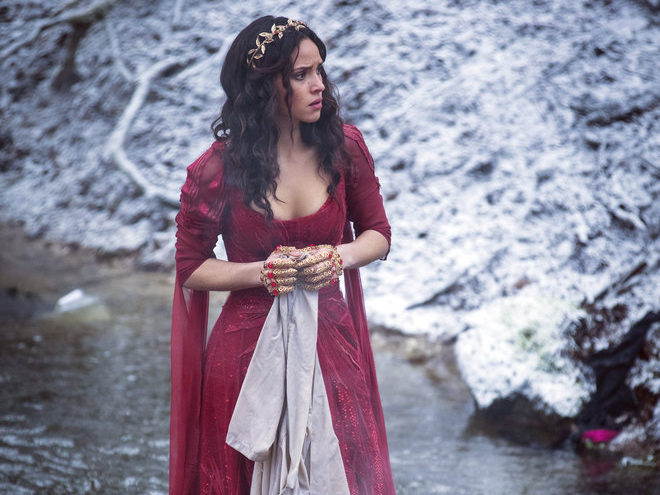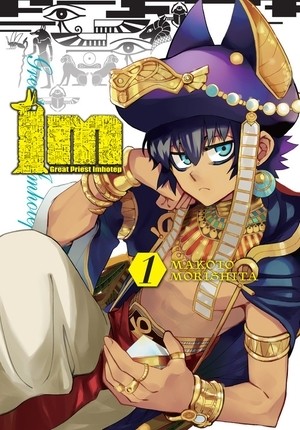Just as Dorothy and her crew were distracted by the glamour of Oz’s special effects, so were many critics paying too much attention to the 1939 film The Wizard of Oz, when the pilot of Emerald City has more than a few shout-outs to Smallville and Star Wars as well.
Not unlike Smallville and Star Wars, Emerald City is a foundling story, as Dorothy is raised by foster parents; moreover, the rustic/pastoral setting of cornfield-filled Lucas, Kansas recalls Smallville, Kansas or Tatooine. When it’s played out in such a cinematic way before us over ten episodes, it is much more obvious that Dorothy may have set the pattern for Luke Skywalker: a farm-child with a lust for adventure travels to far-off lands and meets colorful characters that help him/her dodge Winged Monkeys / Stormtroopers and defeat the master/mistress of mojo that hangs like a dark cloud over the fair lands.
There are, of course, many differences, as well as points of divergence from the original Oz books in the heroine’s Emerald City portrayal. Dorothy is: bilingual; fluent in English and Spanish; an adult; a nurse at Lucas Medical; and, the Auntie Em who raises her is not a blood relative. Additionally, her presumed mother, Karen, appears in a few scenes, which raises questions about Dorothy’s lineage that are a non-issue in Baum’s books and the 1939 movie. In short, this Dorothy is not somebody we already know; she’s a stranger, an orphan to our expectations.
Also, this Dorothy is a moral relativist. In the first five minutes we’re introduced to a pill-swiping, sex-positive, Dorothy, and by the end of the premiere, we see that she is no goody ruby two shoes, but instead tricks the Witch of the East into suicide and unintentionally usurps the witch’s firepower. Unlike the heroine of the 1900 book and the 1939 film, who is chosen by The Wizard of Oz to be his assassin of The Wicked Witch of the West, this Dorothy finds her own way into murder by manipulation, and her methods are more deliberate than a pail of water.
While I enjoy Adria Arjona’s performance, Emerald City‘s Dorothy is more sordid than relatable, and I find myself rooting for other characters, like Tip, Jack, Langwidere, and Jane. “I just want more,” says Dorothy, which lets us know that the theme of wishing and wanting as a means of travel and escape is alive and well in this new variation of the Oz myth. I also want a little more from Dorothy.


